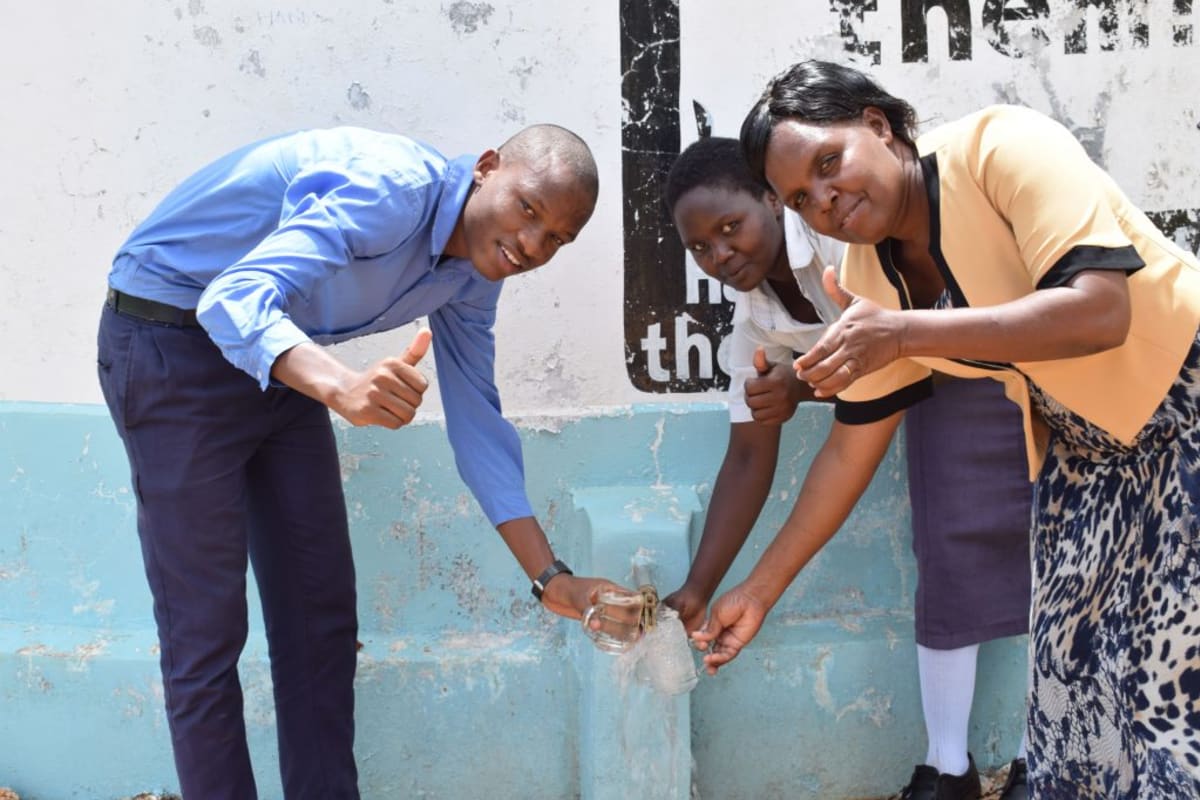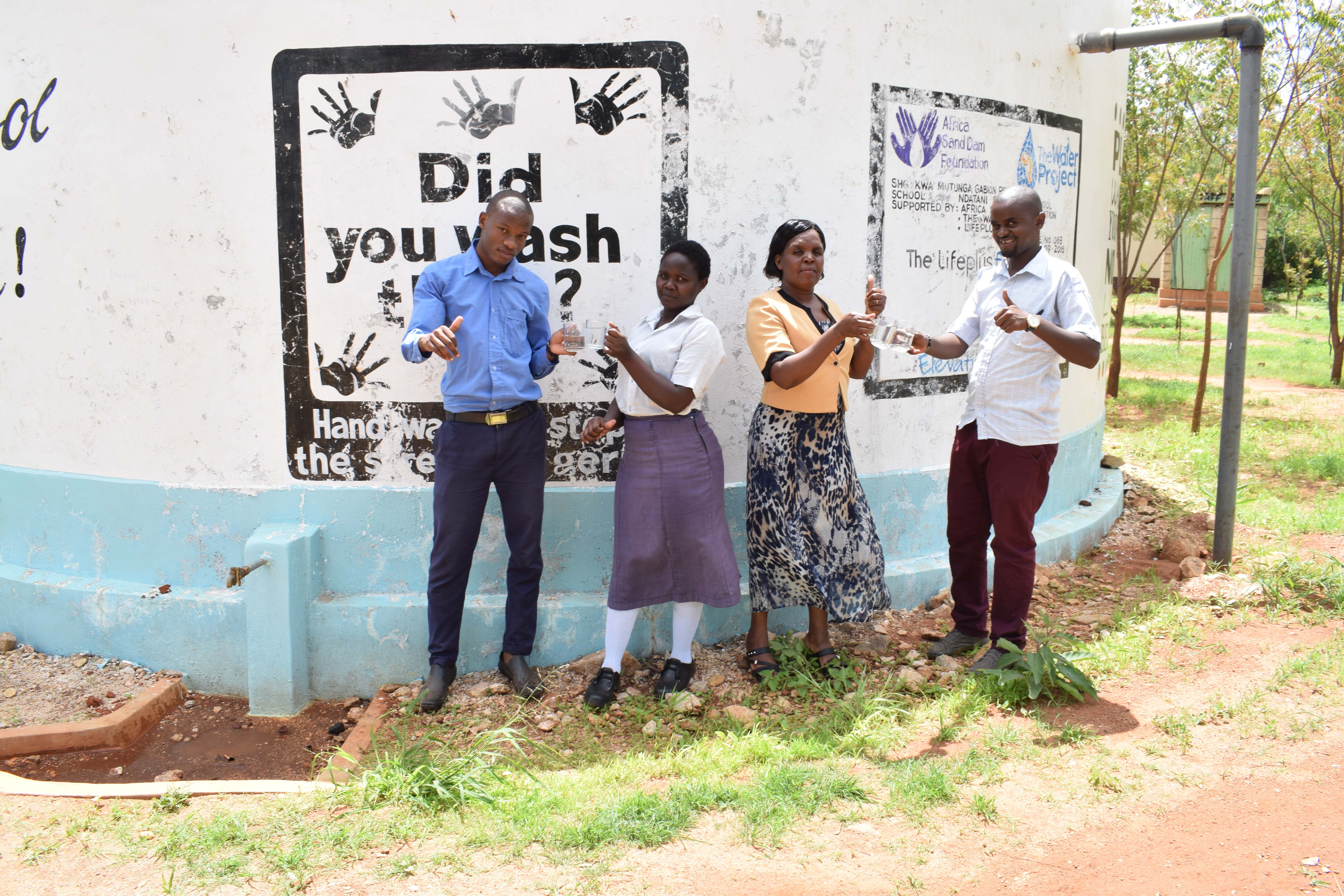A Year Later: Ndatani Secondary School

A year ago, generous donors helped build a rainwater harvesting tank and latrines for the Ndatani Secondary School in Western Kenya. Because of these gifts and the contributions of our monthly donors, our partners are able to visit project sites throughout the year, strengthening relationships with communities and evaluating the actual water project. These consistent visits allow us learn vital lessons and hear amazing stories – we’re excited to share this one from our partner Titus Mbithi with you.
The school now has enough reliable clean water of their own, and no longer have to buy water. Agriculture projects for the final year students have been running smoothly with enough water for irrigation. The school environment looks serene, with new trees planted all around. The hand-washing stations are still working well, and there is a strong hygiene culture among staff and students.
We met Principal Peninah Makau to talk about what she and her school has done with this clean water. "Cases of students falling sick while in school have gone down significantly, owing to the availability of a trusted water supply from the tank. The number of boarding students has gone up, as parents have confidence in the water supply system and are bringing many students on board. Money initially spent on water is being utilized in academic affairs: Needy students are being kept in school, and we're purchasing books and other learning materials."
We met 17-year-old Nzomo Maingi at the tank, too. He said, "Now we get enough drinking water in school anytime throughout the day. School routine is always adhered to, with meals being served on time. Agriculture projects have been running smoothly with water from the tank aiding in irrigation and proper maintenance. School life has become more fun with the clean classrooms and dormitories providing a serene learning environment. We know grades are likely to improve and bolster the school performance."
The Water Project and our partners are committed to consistent monitoring of each water source. Our monitoring and evaluation program, made possible by monthly donors, allows us to visit communities up to 4 times a year. Read more about our program and how you can help.
See The Water Project in Principal Peninah's Community »

